Sullivan misses the point. Although I'm sure he'd agree once he thought about it, he's bought into the Cheney Frame. The whole "War on Terror" farce is the real culprit. Knowing that we've ceded the President of the United States the power to unleash hell upon the world with a simple recitation of the nuclear codes through the chain of command, the question comes down to whether or now we are in a "state of war."
Ahhah, only Congress has the power to declare war, you say. Well boys and girls, in this The Honorable Vice President of the United States is exactly right -- the War Powers Act is unconstitutional. Since that nefarious law was passed (over Nixon's veto) the process of beginning hostile action as perceived by the founders has been stood on it's head. Avoiding the realities of a modern superpower's prerogatives and responsibilities in a dangerous high-tech world is one of the reasons the United States has not officially declared war since WWII, despite being the most militaristic country in the world.
The thing that makes POTUS so potable, so ridiculously powerful is his ability to blow shit up anywhere and anytime he wants, on a whim, and make it happen half-way around the world within minutes or hours, depending on how big a bang he wants to make.
We've invaded, conducted police actions, initiated national liberations, enforced quarantines, protected convoys and shipping lanes, airlifted, escorted, bombed, put our fighting men and women in harms way across the planet, and even used the 82nd Airborne to capture Panama's leader and put him on trial for drug crimes after their legislature declared war on us -- all without a single declaration of war. 118 times since it's passage in 1973, the White House has reported to Congress under the Act. I won't even get into the time when Ronald Reagan's henchmen found a way to fight another war in South America despite Congress's specific prohibition and refusal to provide any funds for the illegal operation no one was supposed to find out about. Since all the perps were pardoned by Bush the Elder anyway, Greenwald's admonitions about not letting them get away with it again are all the more apropos.
What's so super-special-awesome about Dick Cheney's problem with the War Power's Act (merely a Resolution actually, if you are to believe Dick), is that he takes such a predictably back-asswards view of why the thing is wrong, why it's unconstitutional. Cheney, like all good executive operatives with a Napoleonic complex believes that the War Powers Act improperly inpinges on the POTUS's powers as Commander in Chief under Art.II, Sec.2 of the COTUS, which has never been ruled on by SCOTUS. That sounds unreasonable on its face, the very idea that 48 hours after committing our military to hostilities the President is required to notify Congress we've got our war on.
Of course, it isn't reasonable at all. The President can start a war without the Constitutionally mandated declaration of war under the WPA. Notification or not, Congress has illegally abdicated it's prerogatives, turned over an essentially legislative act of grave enough import that the founders insisted that it be subject to reasoned debate and cool heads. Really, can you think of anything of more consequence than committing to military action?
But even that's too much Congressional meddling for Cheney. Shocking, the very idea that they'd have to report anything to Congress. Preposterous! And to add insult to injury, after destroying anything that moves for 60 days, the President is further required by the WPA to remove his forces without a specific authorization for the continued use of military force or an actual declaration of war.
Of course, it's the git-er-done or bring-em-home clause that agitates the VP, at least that's what I would assume, even though he only talks about the notifications requirement.
The War Powers Act is still in force out there today. That requires him to grant certain notifications to the Congress and give them the authority to supersede those by vote, if they want to, when it comes to committing troops.
No president has ever signed off on the proposition that the War Powers Act is constitutional. I would argue that it is, in fact, a violation of the Constitution, that it's an infringement on the president's authority as the commander in chief.
It's never been resolved, but I think it's a very good example of a way in which Congress has tried to limit presidents' authority and, frankly, can't.
Naw, Dick doesn't have any problem telling Congress anything, whether it's that we're at war and/or to go fuck themselves. His problem is that once he's started an otherwise illegal war (but for the WPA's authorization that he can) he doesn't think anyone has the right to tell him to stop after two months of carnage. It's truly a remarkable mind-set, so diabolical. Dick has no problem with the WPA's patently unconstitutional grant of power to POTUS, but objects to the idea that such illegal authority could be taken away if Congress wants to declare peace.
No wonder these guys thought it perfectly proper to by-pass Congress and conduct a war in Nicaragua as long as they didn't fund the thing through official channels. This is the very same ideology that led to the United States athorizing war crimes like torture and extraordinary rendition, to wiretapping everything and everybody, and invading Iraq after ignoring the UN, the weapons inspectors, any contrary intelligence, and Congress's requirement that all diplomatic avenues be exhaused under the AUMF. It further rationalizes why they made up stories about non-existent yellowcake purchases and meetings between 9/11 terrorists and Iraqi intelligence agents that never took place and justifies the outing of under-cover operatives.
For the life of me, I'm not sure what it more important to Cheney: the idea of protecting the powers of the President or the power of the United States. Certainly to him, they are inseparatable. What he most certainly does not appreciate is that by promoting the President to a nearly imperial despot, he destroys this nation, and the Constitution he swore protect -- which of course is exactly what Sullivan was talking about. But there's something more personal, more human we see as the consequences of Cheneyism.
It's again the framing, the idea that we are at war not just with Iraq or Afghanistan, but with an abstract concept, a tactic, a feeling of fear and those that scare us, that we are, or can even be at war with terror.
what we did after 9/11 was make a judgment that the terrorist attacks we were faced with were not a law enforcement problem.
They were, in fact, a war. It was a war against the United States, and therefore, that we were justified in using all the means available to us to fight that war.
And in a war, you capture the enemy and you hold them till the war is over with. You don't capture German prisoners of war and then put them on trial in World War II. That's not what we had to deal with here.
But in terms of what kind of rights these folks had, they were not covered by the Geneva Convention. They were unlawful combatants. They were not...
WALLACE: Well, that's not what the Supreme Court — we'll get to that...
CHENEY: Well...
WALLACE: ... but that's not what the Supreme Court ended up saying.
CHENEY: They were not — this was the decision we made at the time based on the precedent that was available. They were not citizens of a state that had — was a party to the Geneva Convention.
They did not adhere to the laws of war. They spent all their time trying to kill civilians for their — achieve their political ends. They didn't wear uniforms. I mean, by any definition that was available to us at the time, the Geneva Convention does not traditionally apply to terrorists.
WALLACE: Mr. Vice President, here's — here's my — here's my...
CHENEY: Second — no, let me — let me finish.
WALLACE: Can I just ask — can I just ask this...
CHENEY: No.
WALLACE: ... one question? Because I think it will — it will bring the point in. In the first big test case, which was against Usama bin Laden's driver...
CHENEY: Right.
WALLACE: ... Salim Hamdan, the military jury — in the end, the military jury ended up acquitting him of all the major charges against him.
The government asked for 30 years to life. The judge ended up deciding that he should be released based on time served. The question basically is this. Even the government can get things wrong sometimes.
CHENEY: So?
So . . .
So at least when it comes to military matters (or so George Will would seem agree) the President has no peer, no co-equal branch to provide any check or balance. POTUS can start a war with no declaration under the War Powers Act. Cheney would argue that Congress's authority to stop the war us the problematic (read unenforceable and unconstitutional) part of the WPA. He can then declare anyone an enemy, anyone at all if the war is global in nature as it is when the enemy is anyone who terrifies us enough to call them a terrorist, and yet the law of war do not apply.
How perfectly convenient to be able to make war, and make up your own rules of war, and then say the Geneva Conventions don't apply because, after all, it's not a real war with real enemies after all. Unbelievable. That passage made my jaw drop.
The convoluted web of inconsistencies and illegal hypocrisy infesting the VPOTUS's mind would paralyze most mortals, which only proves that either Dick Cheney is undead or quite clinically insane. He's the reason they usually lock psychopaths away -- to protect the rest of society.
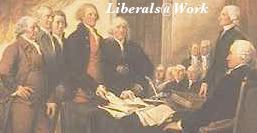 Exposing the lack of compassion by conservatives and
debunking right wing hypocrisy at every opportunity.
Exposing the lack of compassion by conservatives and
debunking right wing hypocrisy at every opportunity.




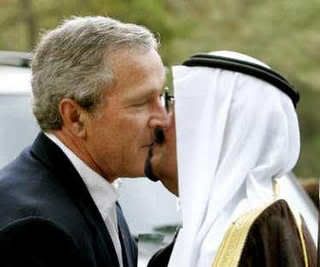

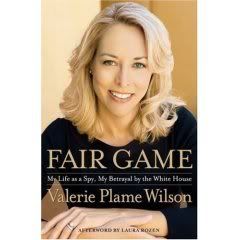
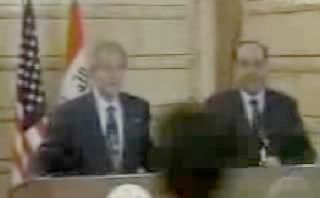
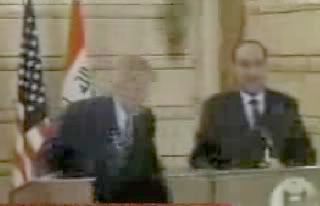
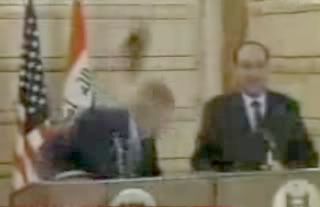
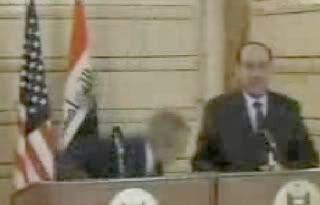
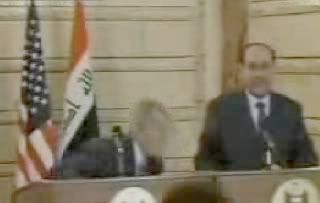




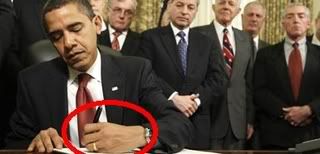
 Subscribe via Email
Subscribe via Email